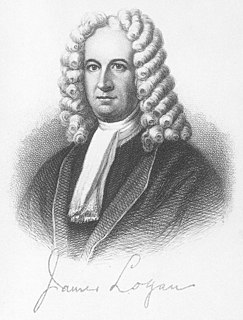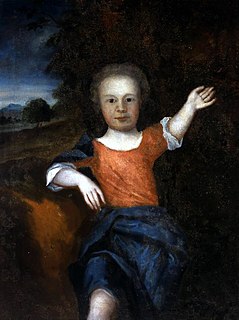
Charles John Huffam Dickens was an English writer and social critic. He created some of the world's best-known fictional characters and is regarded by many as the greatest novelist of the Victorian era. His works enjoyed unprecedented popularity during his lifetime, and by the 20th century critics and scholars had recognised him as a literary genius. His novels and short stories are still widely read today.

Field Marshal Richard Molesworth, 3rd Viscount Molesworth, PC, styled The Honourable Richard Molesworth from 1716 to 1726, was an Anglo-Irish military officer, politician and nobleman. He served with his regiment at the Battle of Blenheim before being appointed aide-de-camp to the Duke of Marlborough during the War of the Spanish Succession. During the Battle of Ramillies Molesworth offered Marlborough his own horse after Marlborough fell from the saddle. Molesworth then recovered his commander's charger and slipped away: by these actions he saved Marlborough's life. Molesworth went on Lieutenant of the Ordnance in Ireland and was wounded at the Battle of Preston during the Jacobite rising of 1715 before becoming Master-General of the Ordnance in Ireland and then Commander-in-Chief of the Royal Irish Army.
Admiral of the Fleet The Hon. George Clinton was a Royal Navy officer and politician. Benefiting from the patronage of Thomas Pelham-Holles, 1st Duke of Newcastle, he served as a naval captain during the 1720s and 1730s.
The Office of Works was established in the English Royal household in 1378 to oversee the building of the royal castles and residences. In 1832 it became the Works Department forceswithin the Office of Woods, Forests, Land Revenues, Works and Buildings. It was reconstituted as a government department in 1851 and became part of the Ministry of Works in 1940.

James Logan was an Irish-born colonial American statesman and scholar who served as the fourteenth mayor of Philadelphia and held a number of other public offices.

Jean Le Clerc, also Johannes Clericus, was a Genevan theologian and biblical scholar. He was famous for promoting exegesis, or critical interpretation of the Bible, and was a radical of his age. He parted with Calvinism over his interpretations and left Geneva for that reason.
Clement Plumsted was Mayor of Philadelphia in 1723, 1736, and 1741. He also served as a Philadelphia councilman, alderman, and justice, as well as on the Pennsylvania provincial council. He was the father of William Plumsted, who also served as mayor of Philadelphia.
Christopher Packe (1686–1749) was an English physician and geologist. His 1743 work A New Philosophico-chorographical Chart of East Kent was the first geological map of Southern England.
Events from the year 1788 in Great Britain.
Phillip French II was the 27th Mayor of New York City from 1702 to 1703.

Procopio Cutò, also known as Francesco Procopio Cutò, Francesco Procopio dei Coltelli, or François Procope was an Italian chef from Sicily. Billing himself as a modern Procopius, he founded in 1686 what has become the oldest extant café in Paris, Café Procope. It became the first literary coffeehouse in Paris. For over 200 years the cafe-restaurant attracted notables in the world of arts, politics, and literature.

Benjamin Harrison IV was an American Virginia planter, politician, and Member of the Virginia House of Burgesses. He was the son of Benjamin Harrison III, and the father of Benjamin Harrison V, who was a signer of the Declaration of Independence and the fifth Governor of Virginia. Harrison is also known as the builder of Berkeley which is believed to be the oldest three-story brick mansion in Virginia and is the ancestral home to two Presidents of the United States: William Henry Harrison, his grandson, and Benjamin Harrison his great-great-grandson. Two powerful and influential families in colonial Virginia, the Harrison family and the Carter family, were united when Harrison married Anne Carter, the daughter of Robert "King" Carter. His family also forged ties to the Randolph family as four of his children married four grandchildren of William Randolph I.

Patrick Gordon was Deputy Governor of the Province of Pennsylvania and the Lower Counties on the Delaware from 22 June 1726 to 4 August 1736. He was deputy to the Proprietors of Pennsylvania, the heirs of William Penn, rather than to a governor. Since the Proprietors were usually in England, he was essentially the Governor.
Sir John Fryer, 1st Baronet was a prominent Presbyterian layman, London pewterer, merchant and Lord Mayor of London. The baronetcy became extinct on his death in 1726. He was created a baronet on 13 December 1714

Col. John Tayloe I was one of the richest plantation owners and businessmen in Virginia for his generation. Considered to be the chief architect of the family fortune, he was known as the "Hon. Colonel of the Old House". The Tayloe family of Richmond County, including John Tayloe I, his son, John Tayloe II, and grandson, John Tayloe III, exemplified gentry entrepreneurship.

Francis Folger Franklin was the eldest son of Founding Father of the United States Benjamin Franklin and Deborah Read.

William Parks (1699–1750) was a printer and journalist in England and Colonial America.
Francis Rawle, originally from England, was a Quaker and colonist in Philadelphia, where he served in administrative positions and was a member of the assembly.













